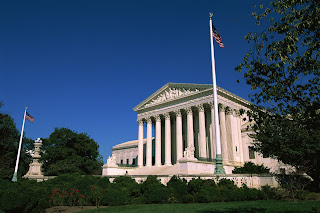Artificial intelligence, "AI", seems to be everywhere in the law practice discussion. But what is it? I don't really know? To resolve my lack of clarity I have been looking for the definitive summary. That has been a struggle. Much like the King's new clothes, there is plenty of buzz, but little explanation.
Above The Law is investing lots of virtual ink on the topic, and has become a preferred learning center. One article in particular that I found useful is Sterling Miller's Artificial Intelligence And Its Impact On Legal Technology. As Miller explains, AI is:
[T]eaching computers how to learn, reason, communicate, and make decisions. Cognitive tools are trained vs. programmed — learning how to complete tasks traditionally done by people, where the focus is looking for patterns in data, testing the data, and finding/providing results. Or, as I like to think about it, a research assistant who can sift through the deck and tell you what it found.Law Technology Today gives us another explanation:
Artificial intelligence, or AI, refers to computer software and systems that don’t just do tasks they’ve been programmed for in advance—they actually learn as they go, improving their performance through feedback. These programs can quickly learn to complete data-intensive tasks that were previously relegated to bored and weary humans. By recognizing patterns in the relationships between words or data points, computers learn how to identify relevant information, recognize mistakes, and spot inconsistencies—all faster, and usually better, than humans do.
Okay, I kind of get it. But how is AI utilized by lawyers? That also seems to be a nebulous question. Here's more golden nuggets from Above The Law:
If you’ve used Google to find a song with just a few words from a lyric or searched Netflix to pick out a comedy that’s safe to watch with kids, you have used applied machine learning. Machine learning is an area of artificial intelligence that enables computers to self-learn, without being explicitly programmed, to look for specific pieces of information.
When lawyers use machine learning for discovery or internal investigations, it’s commonly called technology assisted review (TAR) or predictive coding. Although TAR has been around for a while, lawyers and litigation support professionals still have questions about how to best use it on individual cases.
Okay, we have a vague description of AI. What are some of the actual applications for legal practitioners? More from Legal Technology Today:
The primary areas where AI is being applied in the law, so far, include the following broad categories:
There's still plenty to learn, but is is obvious the dialogue has started. Is it too early for family law lawyers to get on board? Of course not. Large marital estate generate lots of data for divorce. If I am understanding AI, the tools that are developing could be quite useful to us in wrangling all of the information and date more efficiently and effectively. We need to pay attention to this topic as family law practice continues to evolve beyond just the evolving statutes and case law.
- review of documents for discoverable or otherwise relevant information, generally referred to as technology-assisted review (TAR).
- legal research through automated searches of a universe of case law and statutes.
- contract and legal document analysis.
- proofreading, error correction, and document organization.
Please visit hardinglaw.com for more information about Harding & Associates Family Law
#AI #artificial intelligence #Harding&AssociatesFamilyLaw #californiafamilylaw #divorce #family law #superlawyers #americanacademyofmatrimoniallawyers #Pleasantondivorce #AlamedaCountyDivorce #ContraCostaCountyDivorce #lawyers




No comments:
Post a Comment